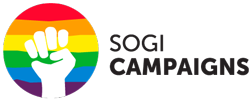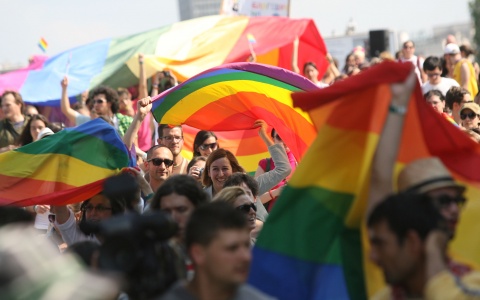Smile, Bulgaria, you’re on candid camera
An upbeat social media campaigns draws attention to serious legal loopholes
Hate crimes and violence against LGBT in Bulgaria are underreported and are often not prosecuted due to inadequate legislation. GLAS Foundation’s Simeon Vasilev tells us about We Are Tolerant Bulgaria, a project which not only lobbies the government for change, but empowers victims as well.
Why are hate crimes and violence against LGBT a persistent problem in Bulgaria?
Since 2011, there have been no major improvements for the rights of people with a different sexual orientation in Bulgaria. According to ILGA-Europe, Bulgaria is among the European countries lagging behind in protecting and safeguarding the rights of the LGBT community.
Even though Articles 162 and 164 of the Criminal Code stipulate penalties in cases of instigation of animosity or hatred on the basis of race, nationality, ethnicity and religion, the instigation of hatred and violence against LGBT is not explicitly mentioned. As a result, hate speech and hate crimes motivated by the sexual orientation or the sexual identity of a person are not considered a criminal act.
The main goal of the project We Are Tolerant Bulgaria was to create an awareness-raising campaign combating discrimination against LGBT people. Most importantly, we wanted to raise a discussion about recognizing hate crimes and violence targeting sexual orientation or gender identity as an offence in the Criminal Code of Bulgaria.
We lobbied the authorities to include sexual orientation and gender identity in all articles of the Criminal Code addressing hate speech and hate crime.
The project also focused on amending the Anti-Discrimination Act to include gender identity as a ground of discrimination. The Anti-Discrimination Act at this time includes sexual orientation as a ground for discrimination, but not gender identity.
In this sense the project was aimed at victims of hate speech and hate crimes motivated by sexual orientation or sexual identity, at the LGBT community, at the straight allies of the same community and at the authorities and Government. The project fostered awareness on the seriousness of hate crime and the fact that the perpetrators must be duly punished.
How did you reach out to victims of hate crimes?
We created a website, explaining why it is important to report homophobic hate crimes and what we wanted to achieve with this campaign. We got in touch with GLEN, the leading LGBT organization in Ireland, who helped us with their expertise with report forms.
The report form is the most important aspect of the website. For the first time, victims or witnesses of hate crimes can report what happened, where it happened, who were the attackers, etc. This gave us a clear idea about the scope of those crimes in the country.
What was your next step in raising awareness?
Initially we were planning to create an artwork solely, but during our talks with the local LGBT community and professional experts from the field of advertising and PR we decided to shoot a short video.
Everyone expected us to deliver a video where we would complain about how bad the situation in our country is, how intolerant people are, how homophobic Bulgarian society is – instead, we wanted to produce a positive video.
Therefore, we staged an experiment with three different gay couples kissing and holding hands in public. It was shot in hidden camera mode. We used actors to act as provocateurs and turn the people against the gay couples. We wanted to see what the reaction of the public would be like. Amazingly, during the shoot we didn’t encounter any aggression, only positive feedback from random citizens. We summed that up in the video with the line: “Thank you, Bulgaria, for being a country without homophobia.”
This video sounds like a great example of ‘showcasing the future’.
Of course, the reality is different, and the video was meant to be a provocation for people who disagree with us.
We added final slides to the video explaining that homophobic and transphobic crimes are not covered by Bulgarian law and crimes on the base of sexual orientation and gender identity should be added to the list of hate crimes in the Criminal Code. With the video we made an online media campaign and social media campaign.
Lessons learned:
[box type=”info”] “Kill them with kindness” is a well known campaign strategy. It’s easier to win hearts and minds by being the “good guys” and exposing how it’s the others who are the villains. Resisting hatred by showing love and support is a great way to win support
[box type=”info”] A lot of people model their attitudes not on what they really feel, but on what they think they SHOULD feel, on what they think is expected from them. By showing alternative attitudes to the mainstream one, campaigns contribute to changing social norms and by creating “role models” for different attitudes. The nature of the role model is of course essential: in this case, it’s a young woman standing up with confidence but no aggressiveness to an older man, which reinforces the power of the “dissent” to mainstream norms. The courage and strength of the young woman generates admiration and reinforces her message.
[box type=”info”] Alternatively, displaying negative attitudes (e.g. by quoting homophobic and transphobic slur) reinforces their “availability” in people’s minds and does not contribute to changing attitudes.

